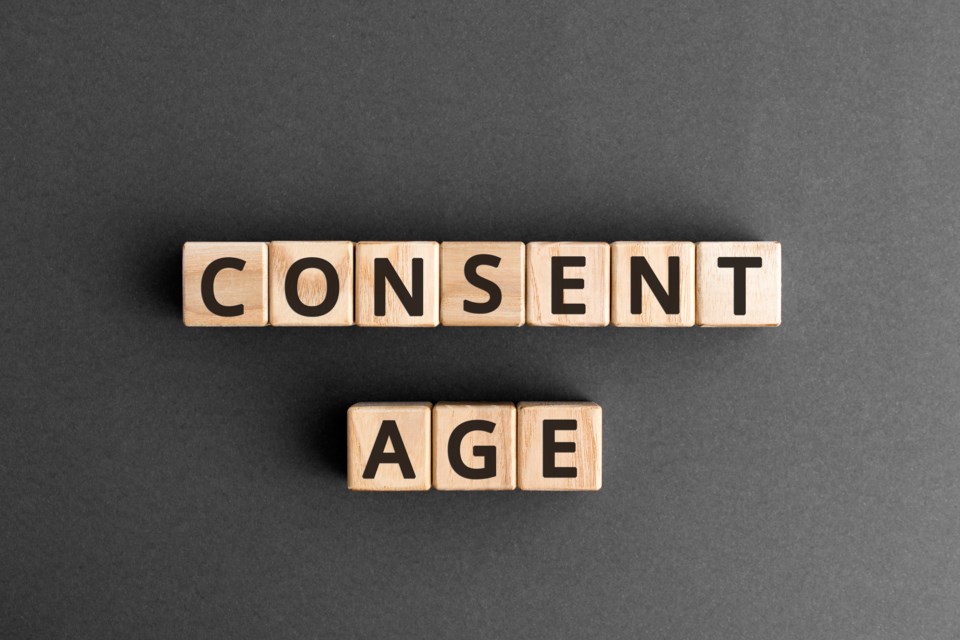Dear Readers - Regarding a letter-writer’s account (June 6) of a godmother’s ongoing sexual relationship with her godson (age 17):
Several readers expressed outrage over the behaviour of the godmother (late 50s) and deep concern about the effects on the teenager, with both thinking they’re “in love.”
My immediate response to the original letter-writer was: “It’s the son, 17, who needs the most caring attention and guidance.” His parents must focus on him only, supporting their son by showing empathy for what he’s experiencing.
A number of readers argued instead for legal consequences, declaring the godmother’s actions “criminal” as a person of trust.
I fully understand their reactions, yet the actual legal jurisdiction where the woman and the teenager reside, isn’t stated.
So, I’ve researched Canadian law, which many readers assumed and referenced:
According to a practising lawyer with the Ontario-based firm TTL Health Law, the age of consent in Canada is 16 years old, pursuant to the Criminal Code.
Section 153 (sexual exploitation) pertains to a “young person,” which is defined as a person over the age of 16 but under 18.
This provision applies to someone in a position of trust or authority to the young person and, according to the lawyer, “It would likely not apply to a godparent. But I’ve included it as well as the consent provision of the Code below.”
Criminal Code
150.1 (in respect of a complainant under the age of 16 years, it is not a defence that the complainant consented to the activity that forms the subject-matter of the charge.
Sexual exploitation
153 (1) Every person commits an offence who is in a position of trust or authority towards a young person, who is a person with whom the young person is in a relationship of dependency or who is in a relationship with a young person that is exploitative of the young person.
Ellie - The original letter stated that all three families were involved in reacting to this situation. Apparently, the teenager’s parents are still involved with him and did not assign legal care/trust of him to his godmother.
He still needs his own family’s response regarding the effects on him mentally/emotionally/socially.
Here are some excerpts from readers’ responses:
#1 - “It’ll take years for that boy to heal from this.”
#2 - “This is a potentially soul-destroying situation for the boy, including his ability to have a solid happy marriage and family of his own.”
#3 - “That boy’s mental health is on the line! Suicide, drug addiction, despair, dysfunctional even criminal behaviour are all risk factors for him moving forward into his adult life.”
#4 - “What matters is that this boy is protected from this vicious exploitation.”
#5 - “The extreme lack of judgment on the part of the woman would make me consider cognitive or psychiatric issues leading to disinhibition.”
#6 - “What she perpetrated is incest, since her relationship to her godson is similar to that of an aunt to a nephew, or a trusted close family friend to the children of both families. The best approach to dealing with incest is a Restorative Justice approach which focuses on the crime and its punishment. If the godmother doesn’t agree, the parents can seek to protect their son by involving the police even if he doesn’t agree with that assessment.”
Ellie: In Ontario, a social worker/counsellor/therapist is legally obligated by law to report a crime perpetrated against a minor. Failing that, a parent or concerned friend can also make that first important call.
FEEDBACK regarding the shocking comment to her daughter made by a mother’s partner and her lost trust (June 6):
Reader – “Your advice is needed to push the lady to think harder about whether her trust can ever be regained. His comment may be traumatic for her. Forgiveness/apology/good behaviour going forward won’t necessarily cure the trauma.
“The daughter was shocked and traumatized in her mother’s home.
“I value my daughter’s safety more than my partner’s. He must get out or she must leave. Her daughter cannot feel at risk in her mother’s home.
“What he said was a verbal assault on her daughter (and her guest) which cannot be fixed by her.
“If I were the daughter, would I ever visit again? No. Would I trust my mother’s love which involves protective behaviour? NO. Would I bring friends, family over to my mom’s? No.”
Absent a medical/mental health explanation for his comment, they must separate.
A reader’s tip of the day
If the situation were a 50-year-old man and a 17-year-old girl, there would’ve been an immediate phone call to police.
Send relationship questions to [email protected].



